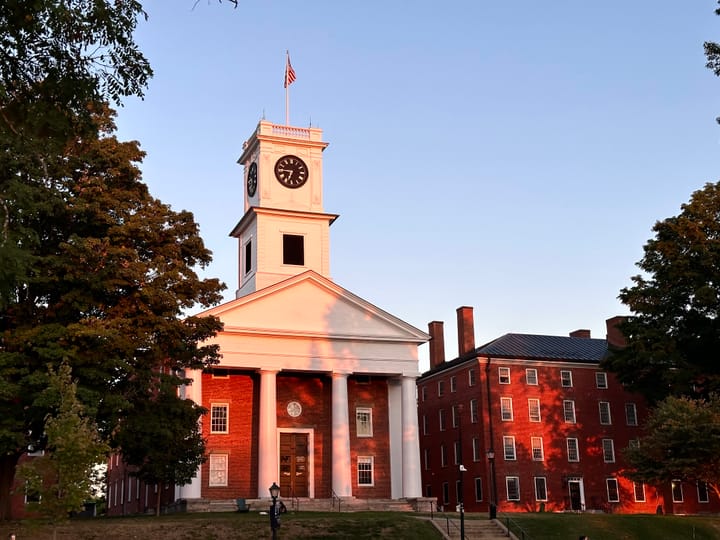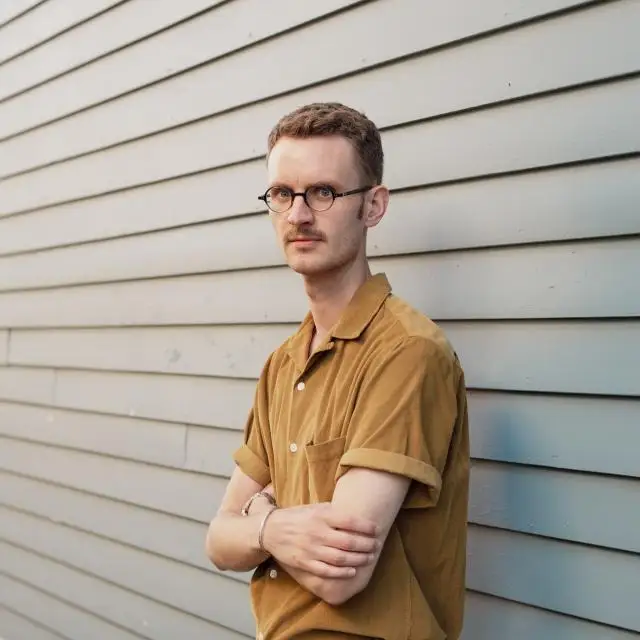Halfway Through a Turbulent Semester, Students Reflect on Areas for Change in Open Forums
President Biddy Martin, joined by members of her senior staff, hosted two Zoom forums to gauge student feedback on the fall semester, one for on-campus students on Sept. 30 and the other for remote students on Oct. 1. Among the highlights of the forums include the opening of more social spaces and residence halls to non-residents, students requesting more lenient Covid rule restrictions and updates on spring plans.
Beginning the Sept. 30 forum for on-campus students, Martin officially announced that the college planned to open up more indoor spaces for socializing, noting the arising need as the weather begins to cool down. The Powerhouse, O’Connor Commons in Charles Pratt Dormitory and the Ford Hall event space are slated to open for students to eat, gather and socialize in the coming weeks, with logistics still in the works for the possibility of LeFrak Gymnasium. Currently Frost Library and the Science Center remain the only indoor spaces for students to gather, with outdoor tents serving as the primary social centers.
Martin added that all residence halls would open to students regardless of whether or not they are residents — a sign of hope for students who have felt restrained to their individual dorm rooms. Conditions remain, Martin said: Students must continue to be vigilant on mask-wearing, social distancing and maintaining zero positive cases on campus, along with only using the common rooms of these buildings. Shortly after the forums, on Oct. 2, Chief Student Affairs Officer Karu Kozuma sent an email to on-campus students with a survey on how to proceed with resident hall access. In the survey, students could vote on three options: maintaining the current policy, which limits resident hall access to residents only; allowing non-residents into residence halls during limited hours; or offering unlimited access to all residence halls for all students.
Following the announcement, Martin moved to acknowledge the difficulties of the semester — the constraints of being on campus, loneliness and staff efforts to keep campus safe — before asking students to share positive aspects of the semester that they hoped to see continued.
Among the positives students shared included the opportunity to be in community in-person, Boxed Water and Valentine’s late night meal offerings and catering from town restaurants. Students also conveyed their satisfaction with their courses and their professors’ efforts to engage them amid hybrid learning.
Soon after, students brought their concerns to the forefront for the remainder of the forum. The first student comment came from a community advisor who hoped to see residence hall access expanded, noting that regardless of the existing ban, students were already going into residence halls they did not live in. They added that students felt more inclined to attend parties in the woods rather than safely having small indoor gatherings. In response, Martin said that such “30-person gatherings in the woods” were prohibited and viewed opening residence halls as a possible alternative.
The next student questioned why some community members were tested three times a week, with others only once or twice. Chief Financial Officer Kevin Weinman responded that unlike faculty or staff, who are tested once or twice a week depending on how frequently they visit campus, students live “in close community with each other.”
“Even though we’re asking you to wear masks and be socially distant, if we go too long between tests and somebody contracts the virus several days before their next test, the risk that the virus could spread before we catch it becomes great,” he said.
Another student questioned why the convenience store in Schwemm’s did not have Black haircare products, noting that it had been a major source of conversation amongst the Black Students Union. Chief of Campus Operations Jim Brassord said that the convenience store intended to take student feedback on and requests for products as the semester went along, with the knowledge that the store “would not anticipate everything students required” upon its initial opening. Brassord recommended going to the convenience store directly and providing that input there.
The topic of mental health came up shortly after, emphasizing that the colder weather and lack of social spaces could have a substantial impact. Kozuma noted that multiple departments on campus — from the Office of Residential Life to the Office of Spiritual Life to Student Affairs — have coordinated to address student needs. Director of the Counseling Center Jackie Alvarez added that the college hoped to create an environment where students were “not just surviving, but thriving,” pointing to programs like Project Connect — a forum currently for first years to connect with each other and soon to be expanded to the whole college — to foster community among students and build connections.
Afterwards, when asked about whether the Amherst College Police Department (ACPD) was responding to Covid-19 violations, Kozuma said that addressing violations has fallen on Student Affairs, which aims to work directly with students on these violations. “If we start to see each other as potential violations and not as people, I think that’s a really challenging component,” he said. A later question asked what recourse was available for negative interactions with ACPD, to which Brassord said that students could report incidents to Chief of Police John Carter and to Student Affairs.
On decision-making for the spring semester, one student asked whether it would be beneficial to remain on campus even if their courses were entirely virtual, to which Provost and Dean of Faculty Catherine Epstein responded that more and more professors were beginning to host office hours on campus and that other on-campus resources, like the library, remain available, though she added that it is a “personal decision” for students to stay.
The next student tackled the issue of loneliness, describing frustration with not being able to socialize as easily as in pre-pandemic times and other colleges’ more lax restrictions and expressing hope to enter other students’ residence halls to alleviate some of the confinement. “I want to acknowledge how hard it is,” Martin said. “Please bear in mind that with a lot of the decisions, they’re never made because we want to restrict you. They’re always made because we know how dangerous and how transmissible this virus is.”
On restrictions on athletic practices, Director of Athletics Don Faulstick noted that “part of the reason we could practice at all is because we are adhering to the supervision rules to make sure that people are being safe,” adding that the NESCAC requires such restrictions to be in play.
One question asked why grading this semester deviated from the previous, in which the Flexible Grading Option was widely expanded. Epstein said that “the faculty feel that now they understand better how to teach online, and you understand better how to study online.” She added that despite the semester’s normal grading system, professors are still flexible to student needs.
Finally, with the exclusion of fall break this year, a student proposed that the college declare a mountain day similar to that at Smith, in which classes are cancelled on a random day of the semester. “It would be the end of me with the faculty if I declared one,” Martin teased. “We need to talk about it. Will there be a mountain day? It’s never gone over well at Amherst to have a mountain day, but it’s always on my mind.”
For the remote student forum, Martin began by inviting students to share their experiences with learning off campus, before asking students to submit their current addresses for a Fall Festival Package delivery. She then underscored that the college’s plans for the spring semester — inviting juniors and seniors, as well as other students with situations that require them to be on campus, with the possibility of inviting more students if “things go very, very well” — have remained unchanged albeit still tentative, dependent on the situation in coming months. She noted that the exact details and rules for on-campus students in the spring will also largely be similarly dependent on what transpires in the near future.
However, she also remained optimistic, citing the limited number of cases that the college has seen thus far: “I can’t imagine we wouldn’t have juniors and seniors on campus, unless there is a major winter surge of the virus across the country, or the rest of the semester fails to go as well as it has today,” Martin said. Students should expect to hear official confirmation on college plans “sometime in November, probably early to mid-November,” she added.
Similarly to the first forum, the discussion then turned to a student Q&A period. Responding to a question about spring study abroad programs, Provost and Dean of Faculty Catherine Epstein noted that they expect to know whether such programs will run “within the next month or so” and that such decisions are largely dependent on what program providers choose to do, as Amherst offers no study abroad programs of its own.
For clarification on the process for declaring a return to campus in the spring, Chief Student Affairs Officer Karu Kozuma explained that the situation would likely mirror the procedure followed this past summer, where an intent form is sent to each student to complete.
Martin then directed the conversation to Director of the Counseling Center Jacqueline Alvarez, who emphasized that the Counseling Center is still open to provide some options for help with maintaining mental health for remote students and brought up some ways in which remote students can remain connected with the Amherst community.
In response to a student’s concerns about the increased workload from remote learning, Epstein said that the increase in “busy-work” experienced by the students is likely due to a broader shift in pedagogical style made by the faculty to accommodate teaching online, which itself is part of a “horrible experiment” that was needed to find a “silver lining” amid the pandemic. Epstein added that, with this pedagogical shift, the college is looking into expanding “online engagement and teaching with alumni.”
Some students also asked about the schedule of remote courses, to which Epstein responded that the available time slots for courses in the spring semester would remain the same as they did in the fall semester and that it was ultimately the decision of individual faculty for when to offer their courses.
After introducing a number of members of the college’s senior administration, a few students also expressed a desire for more informal moments of interaction that are available in an in-person classroom but not in a remote one, noting that it makes them feel less like an Amherst student. Although Martin cited some programs aimed at decreasing alienation among remote students, she also acknowledged that there are some parts of the Amherst experience that are irreplicable and offered her sympathies.
Martin closed by thanking the students in attendance and asking students to fill out a forthcoming survey about their experiences learning this semester.





Comments ()